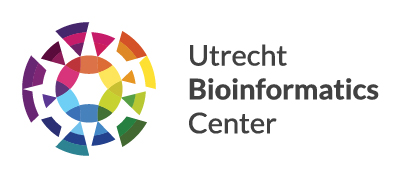Cell biology continues to evolve rapidly and generate vast amounts of data. Extracting meaningful insights from this data presents a major challenge. With expertise in both bioinformatics and epigenetics, Vivek Bhardwaj is dedicated to developing computational methods that help unlock the complexities of single-cell genomics. His work focuses on understanding how epigenetic mechanisms influence cell fate, combining data-driven approaches with innovative bioinformatics tools.
We sat down with Vivek to discuss the importance of computational techniques in single-cell genomics, the bioinformatic challenges his team faces, and his vision for collaboration within the UBC community.
Why do we need computational techniques for single-cell genomics?
Single-cell genomics is rapidly developing. Researchers are continuously pushing the boundaries of detecting genome-wide insights from single cells. These insights include the chromatin state, gene expression, and combinatorial (multi-modal) readouts.
However, each of these measurements presents unique challenges specific to the experimental assay used, alongside common issues related to detection sensitivity.
This means computational techniques must continuously evolve to address these challenges, and extract the most meaningful biological signals from these datasets.
How does bioinformatics fit into your work?
Our research focuses on understanding the epigenetic control mechanisms that regulate stem cell and pluripotent cell fate in animals. We use a data-driven approach, leveraging single-cell epigenomics and multi-omics data to uncover how these regulatory layers influence cell identity.
Unraveling these mechanisms presents several bioinformatic challenges, particularly in integrating and interpreting complex datasets. Our team dedicates considerable effort to developing computational methods that address these challenges. In the process, we create new tools that can be used by other researchers tackling similar questions.
Are you looking to collaborate with researchers from other disciplines?
Absolutely! While our research is grounded in fundamental biology, our work has important implications for regenerative medicine, cell therapies, and epigenetic treatments. I’m particularly interested in collaborating with clinical and translational researchers who have questions about epigenetic regulation in cells. By combining their knowledge with our data-driven approach, we can uncover valuable insights in disease mechanisms and explore potential treatments.
Our team brings strong expertise in generating and analyzing single-cell epigenomics and multiomics data. We’re eager to apply these skills to collaborative projects that aim to improve diagnostics and therapeutic strategies.
What are you looking forward to most as a PI at the UBC?
The UBC offers an inspiring environment with a diverse group of PIs working across fundamental and translational bioinformatics. This platform makes it easier to connect, collaborate, and combine our expertise to tackle complex challenges.
I’m particularly excited about UBC meetings and events, which provide valuable opportunities to exchange ideas and build partnerships. Additionally, I look forward to welcoming motivated students interested in applying computational skills to the exciting field of single-cell genomics.

